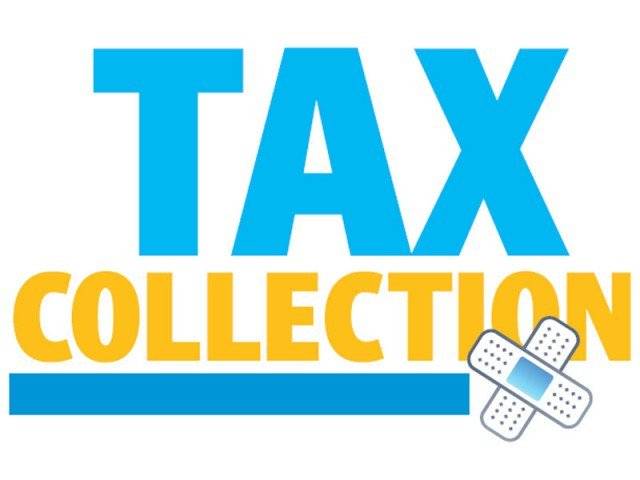
Contrary to the fears and common perception amid the historic revenue collection shortfall, the World Bank has said there is no need to impose new taxes or increase the rate of the existing ones, as there is vast scope of improving collection in Pakistan.
A report published in Pakistan’s leading newspaper Dawn cited a recently released report “Pakistan Revenue Mobilisation Project” in which the World Bank says that the tax authorities are currently capturing only half of this revenue potential.
The document says the revenue potential would reach 26 per cent of GDP, if compliance were to be raised to 75 per cent, which is a realistic level of compliance for lower middle income countries.
The report is released as the government is trying to diminish the shortfall with the World Bank’s assistance of $400 million for the revenue mobilisation project to be implemented by the Federal Board of Revenue (FBR). The credit of $400m will come from World Bank affiliate, International Development Association (IDA).
The World Bank has also mentioned challenges. It says the FBR, unlike the most revenue authorities in the world, is not organised along functional lines and doesn’t have a clear hierarchical structure.
It also cites lack of coordination between the federal and provincial governments and says the different rules applied by the Centre and the provinces generate frequent disputes, especially over input adjustments for GST taxpayers.
Pakistan needs to increase its tax revenues to ensure fiscal sustainability and generate fiscal space to finance much needed investments in human capital and infrastructure, it adds.
And the share of tax revenue collected by the provinces is also at nine per cent of total receipts which fall short of 15 per cent of GDP, the minimum considered adequate to cover the basic expenditure needs of developing countries.
But the document mentions the improvement in the revenue collection performance – from 9.5 per cent of GDP in 2011-13 to 13 per cent in 2017-18 –resulting from the tax policy measures including reduction in exemptions for specific industries and improvements in tax administration at the federal and provincial levels.
The transformation roadmap suggests security of tenure for the FBR chairman for a fixed mandate, a financing formula whereby the FBR’s budget would be fixed as a share of previous year’s receipts — one per cent and flexibility to use its budget across budget lines as needed.
The roadmap consists of three parts: a ten-year vision for the FBR’s institutional transformation, three-year dynamic implementation plan (1920-22) to be updated annually and short-term action plan for accelerating revenue collection in 2019.
The roadmap under the World Bank-funded project also highlights measures to strengthen the technical expertise and improve the performance of the FBR’s human resources.
A report published in Pakistan’s leading newspaper Dawn cited a recently released report “Pakistan Revenue Mobilisation Project” in which the World Bank says that the tax authorities are currently capturing only half of this revenue potential.
The document says the revenue potential would reach 26 per cent of GDP, if compliance were to be raised to 75 per cent, which is a realistic level of compliance for lower middle income countries.
The report is released as the government is trying to diminish the shortfall with the World Bank’s assistance of $400 million for the revenue mobilisation project to be implemented by the Federal Board of Revenue (FBR). The credit of $400m will come from World Bank affiliate, International Development Association (IDA).
The World Bank has also mentioned challenges. It says the FBR, unlike the most revenue authorities in the world, is not organised along functional lines and doesn’t have a clear hierarchical structure.
It also cites lack of coordination between the federal and provincial governments and says the different rules applied by the Centre and the provinces generate frequent disputes, especially over input adjustments for GST taxpayers.
Pakistan needs to increase its tax revenues to ensure fiscal sustainability and generate fiscal space to finance much needed investments in human capital and infrastructure, it adds.
And the share of tax revenue collected by the provinces is also at nine per cent of total receipts which fall short of 15 per cent of GDP, the minimum considered adequate to cover the basic expenditure needs of developing countries.
But the document mentions the improvement in the revenue collection performance – from 9.5 per cent of GDP in 2011-13 to 13 per cent in 2017-18 –resulting from the tax policy measures including reduction in exemptions for specific industries and improvements in tax administration at the federal and provincial levels.
The transformation roadmap suggests security of tenure for the FBR chairman for a fixed mandate, a financing formula whereby the FBR’s budget would be fixed as a share of previous year’s receipts — one per cent and flexibility to use its budget across budget lines as needed.
The roadmap consists of three parts: a ten-year vision for the FBR’s institutional transformation, three-year dynamic implementation plan (1920-22) to be updated annually and short-term action plan for accelerating revenue collection in 2019.
The roadmap under the World Bank-funded project also highlights measures to strengthen the technical expertise and improve the performance of the FBR’s human resources.
